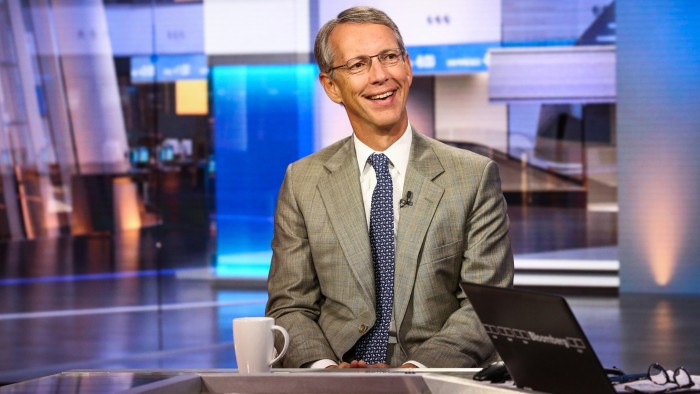Unlock the Editor’s Digest for free
Roula Khalaf, Editor of the FT, selects her favourite stories in this weekly newsletter.
In a break during a tense 2009 Citigroup board meeting, one of Wall Street’s more influential figures Robert Rubin approached the firm’s outside investment banking adviser, Scott Bok.
Former US Treasury secretary Rubin, at that time a Citi executive, told Bok he knew his father, mistakenly presuming he was the son of Derek Bok, the esteemed scholar and former president of Harvard University. The origins of the banker’s father were far more humble — a Midwestern high school dropout, he supported his family by installing telephone poles. This start, however, did not hinder an eventful four-decade career on Wall Street recounted in Scott Bok’s memoirs Surviving Wall Street: A Tale of Triumph, Tragedy and Timing set to published next week.
Over that run, he raked in hundreds of millions of dollars in stock and pay (he also bought Greenhill shares at times), eventually accumulating enough stature to become the chair of trustees of an Ivy League university as well as Manhattan’s American Museum of Natural History.
Relative to the biggest names on Wall Street, Bok makes perhaps a B-list grandee — something that his autobiography candidly acknowledges. Bok told me he likened his professional arc to that of Forrest Gump — maybe not the most important guy in the room but one with at least a front-row seat at several historic moments, propelling him to a position of influence outside Wall Street.
While the book has been in the works since the pandemic, it raises some questions that seem very relevant in 2025 — including whether all the social, political, and cultural might that financiers have accrued in a golden age of US finance has ultimately been a good thing for the rest of America, including people like Bok’s own father. And then whether this era will be shattered by an inward-looking Trump presidency.
I first met Bok 20 years ago when I applied for a job at Greenhill & Co, the merger advisory boutique founded a decade earlier by Robert Greenhill, a pioneering investment banker. Greenhill spent decades at Morgan Stanley and founded his eponymous firm after a stint at Smith Barney, where he had been fired in the mid-1990s by Sandy Weill and replaced by his deputy Jamie Dimon. Greenhill recruited Bok, then in his late 30s and a veteran of corporate law and Morgan Stanley, to lead deals and then increasingly to run the start-up Greenhill & Co.
The firm thrived straightaway both in New York and London, finding that chief executives liked working with smaller firms.
When I met Bok for that interview in 2005, Greenhill had just gone public and a few years later hit a $2bn market capitalisation. It was a heady time, coming ahead of the extended boom in dealmaking around the world just as hedge funds and private equity were proliferating. Innumerable personal fortunes were minted as stock markets, with only a few blips, kept soaring.
The Greenhill executive team repeatedly took money off the table in share sales and dividend proceeds. The Greenhill firm, however, did not fare so well. Several formidable competitor firms formed and Bok failed to keep up. Once-flattering media attention dried up as well. Bok chronicles his various minor clashes with journalists, including me. In 2023, the Japanese bank Mizuho acquired Greenhill for $550mn, much in assumed debt. The per share purchase price of $15 was a far cry from the $90 the firm traded at in the late 2000s.
The Greenhill sale and its lessons about the fragility of financial institutions was intended to be the coda of Bok’s book. But events intervened and provided a gripping conclusion. Bok was drawn into a very public spotlight because of his role as chair of the trustees at the University of Pennsylvania amid the college protests that followed the Hamas terror attack in Israel on October 7, 2023. Bok backed the school’s then president and the institution’s handling of campus affairs though both ultimately resigned under pressure.
Bok offers his first detailed version of those events here — well worth a read and reflection. He also observes that the fracas ultimately degenerated into a fight between the differing agendas of a group of millionaire and billionaire benefactors, even as the university remained an institution with a wide range of students, graduates and research.
Bok, like many among the Wall Street ruling class, owes much of his fortune to riding a wave of money-spinning in the US over the past 40 years. At the end of a top run, Bok has the humility to acknowledge this good luck. A series of high-flying careers are set to wrap up in coming years and I’m curious to see which other Masters of the Universe will be as introspective.
sujeet.indap@ft.com




